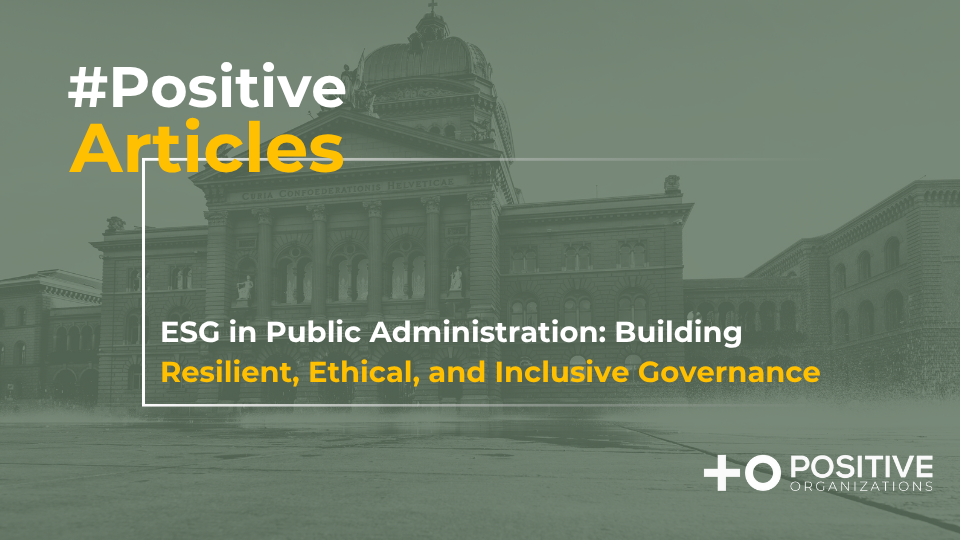News & Publications
.png)
.png)
Corporate sustainability is a holistic approach to conducting business that creates long-term value for shareholders, employees, consumers, and society by pursuing responsible environmental, social, and economic (or governance) strategies. It's about ensuring that acompany's operations and decisions not only benefit the business but also contribute to a sustainable future for the planet and its communities. It involves integrating sustainable practices into every aspect of a company's operations, from supply chain management and product development to human resources and corporate governance.
In today's world, where climate change, resource depletion, and social inequality are pressing global challenges, corporate sustainability has emerged as a crucial strategic priority for businesses. While traditionally seen as an ethical or moral responsibility, sustainability has now become a key driver of business success, providing companies with competitive advantages, improving their brand image, and ensuring long-term profitability.
Key components of corporate sustainability:
- Environmental sustainability: This involves minimizing a company's negative impact on the environment and conserving natural resources. Examples include reducing carbon emissions, conserving water, and minimizing waste.
- Social sustainability: This focuses on a company's relationships with its employees, customers, and communities. It involves ethical business practices, fair labor practices, and supporting social causes.
- Economic sustainability: This ensures a company's long-term financial viability and profitability while considering the environmental and social impacts of its operations. It involves efficient resource management, risk management, and ethical business practices.
The shift toward corporate sustainabilityis not just a response to regulatory pressures or consumer demands; it is a recognition that businesses are deeply interconnected with the societies and environments in which they operate. Companies that engage in unsustainable practices may achieve short-term gains but are often at risk of long-term failures. Depleting natural resources, exploiting workers, or contributing to environmental degradation not only harms the planet and society but also exposes businesses to reputational damage, regulatory penalties, and higher operational costs. For instance, companies in industries like manufacturing, agriculture, and energy are particularly vulnerable to climate risks, such as extreme weather events or resource shortages, which can disrupt supply chains and inflate production costs.
On the other hand, adopting sustainable business practices can help companies mitigate risks while unlocking numerous opportunities for growth. One of the most immediate benefits of sustainability is cost savings. Many businesses are finding that reducing energy consumption, minimizing waste, and using resources more efficiently not only lowers their environmental impact but also significantly reduces operational expenses. Companies that invest in renewable energy, for example, can protect themselves from volatile fossil fuel prices while demonstrating a commitment to environmental responsibility. Similarly, improving the efficiency of water use or minimizing waste production can lead to lower utility and disposal costs, enhancing the bottom line.
Moreover, corporate sustainability can drive innovation and open up new markets. As consumers become more conscious ofthe environmental and social impact of the products they buy, businesses that offer sustainable alternatives often find themselves at a competitive advantage. Sustainable innovation can involve everything from creating energy-efficient products to designing packaging that is biodegradable or recyclable. Companies which have built their business models around sustainability, have gained immense market value by aligning with the growing demand for eco-friendly products. In addition, sustainable practices can help businesses meet the expectations of an increasing number of investors who prioritize environmental, social, and governance (ESG) factors in their decision-making.
Another critical aspect of corporate sustainability is the enhancement of brand reputation and customer loyalty. In the digital age, where consumers have access to vast amounts of information, businesses are under constant scrutiny. Brands that demonstrate a genuine commitment to sustainability are more likely to gain the trust of consumers and foster long-term loyalty. Customers today expect more than just a good productor service; they want to support companies that reflect their values. Companies that act responsibly and transparently, showing how they contribute to a healthier planet and more equitable society, tend to build stronger relationships with their customers, which in turn can lead to higher sales and brand loyalty. Conversely, businesses that engage in greenwashing—pretending to be sustainable without making substantive changes—risk damaging their reputations when consumers uncover inconsistencies.
Corporate sustainability also plays a vital role in attracting and retaining talent. As younger generations enter the workforce, they bring with them a heightened awareness of social and environmental issues. Millennials and Gen Z, in particular, are drawn to companies that align with their values and are more likely to choose employers who prioritize sustainability and ethical practices. For businesses, this means that sustainability is not just about external image—it also impacts internal culture and employee satisfaction. A company that fosters a sense of purpose and social responsibility is more likely to attract top talent and maintain higher levels of employee engagement and productivity.
Finally, implementing sustainable practices is essential for long-term business resilience and adaptability. Sustainability is not merely about addressing current environmental or social issues but about preparing for the future. Climate change, resource scarcity, and evolving regulatory frameworks will continue to pose challenges for businesses. Companies that invest in sustainability now will be better equipped to navigate these changes and adapt to a rapidly shifting business landscape. By building resilient supply chains, diversifying energy sources, and focusing on sustainable innovation, businesses can future-proof themselves and maintain a competitive edge.
Start Your
Journey Today









.png)





